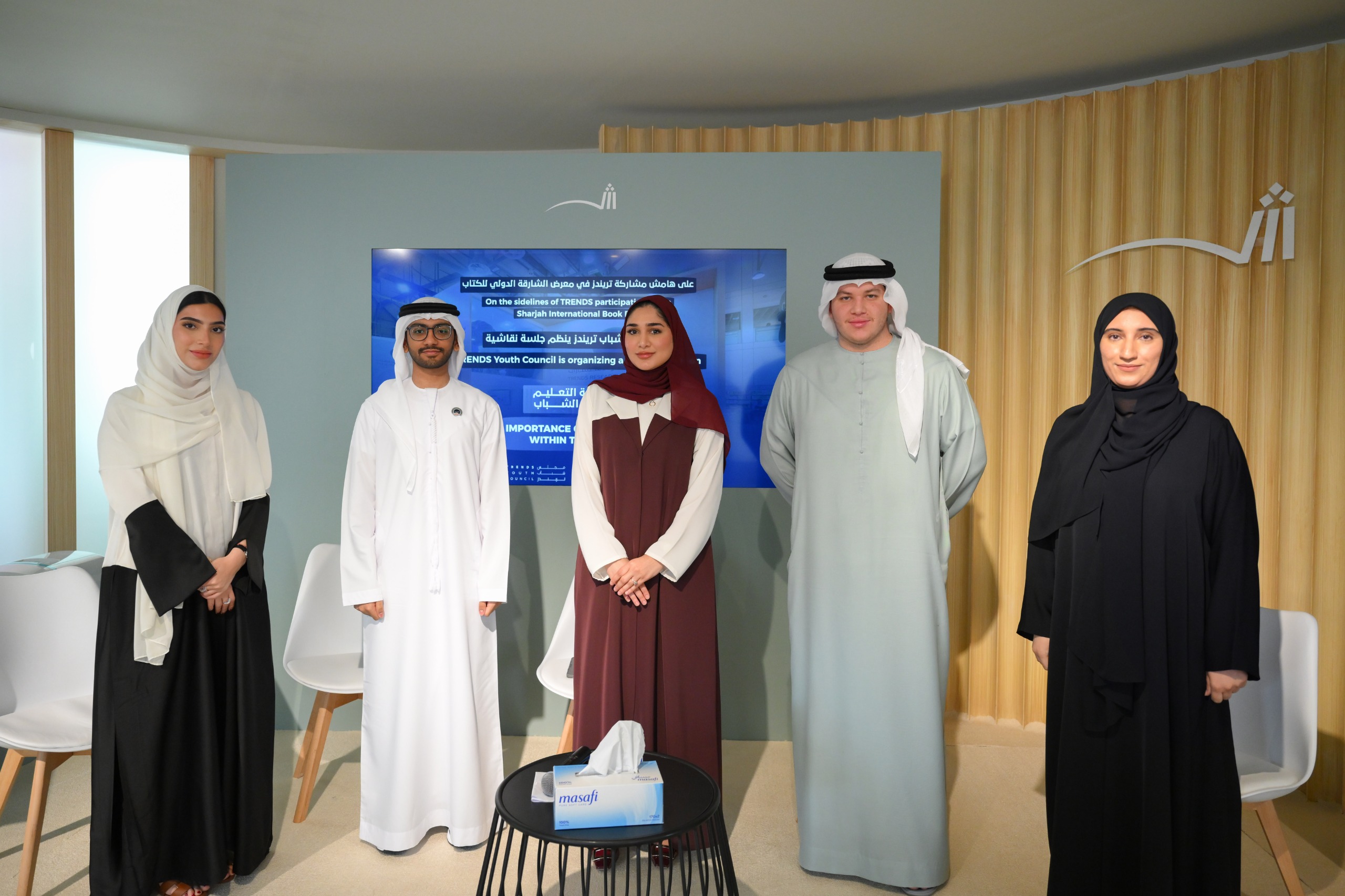On the sidelines of the participation of TRENDS Research and Advisory in the 43rd edition of the Sharjah International Book Fair, the TRENDS Youth Council held a panel discussion titled “The Importance of Education Among Youth” at the Writers’ Forum in Expo Centre Sharjah.
The session, moderated by Alanood Alhosani, researcher and Head of the TRENDS Youth Council, included panellists Abdullah Al-Khaja, researcher at TRENDS, Aisha Al-Ali, a member of the Sharjah Youth Council, Omar Al-Ali, President of the Student Association of Foreign Affairs (SAFA) at the American University of Sharjah, and Zahra Alblooshi, Senior Specialist in Strategic Planning and Corporate Performance Management at the Regional Center for Educational Planning.

Artificial Intelligence as a Tool
Abdullah Al-Khaja opened the session by emphasizing that education is one of the strongest tools for shaping the future of youth, especially in the digital age, where students have unprecedented access to information, thanks to technological advancements and AI tools. However, these tools come with challenges regarding their use. Students increasingly rely on AI for quick answers, sometimes at the expense of their research, critical thinking and creativity.
He mentioned that AI is a tool, not a replacement for learning. When students rely on it for all their answers, they risk losing essential skills that education is meant to develop, such as critically analyzing information, questioning sources, and exploring different viewpoints.
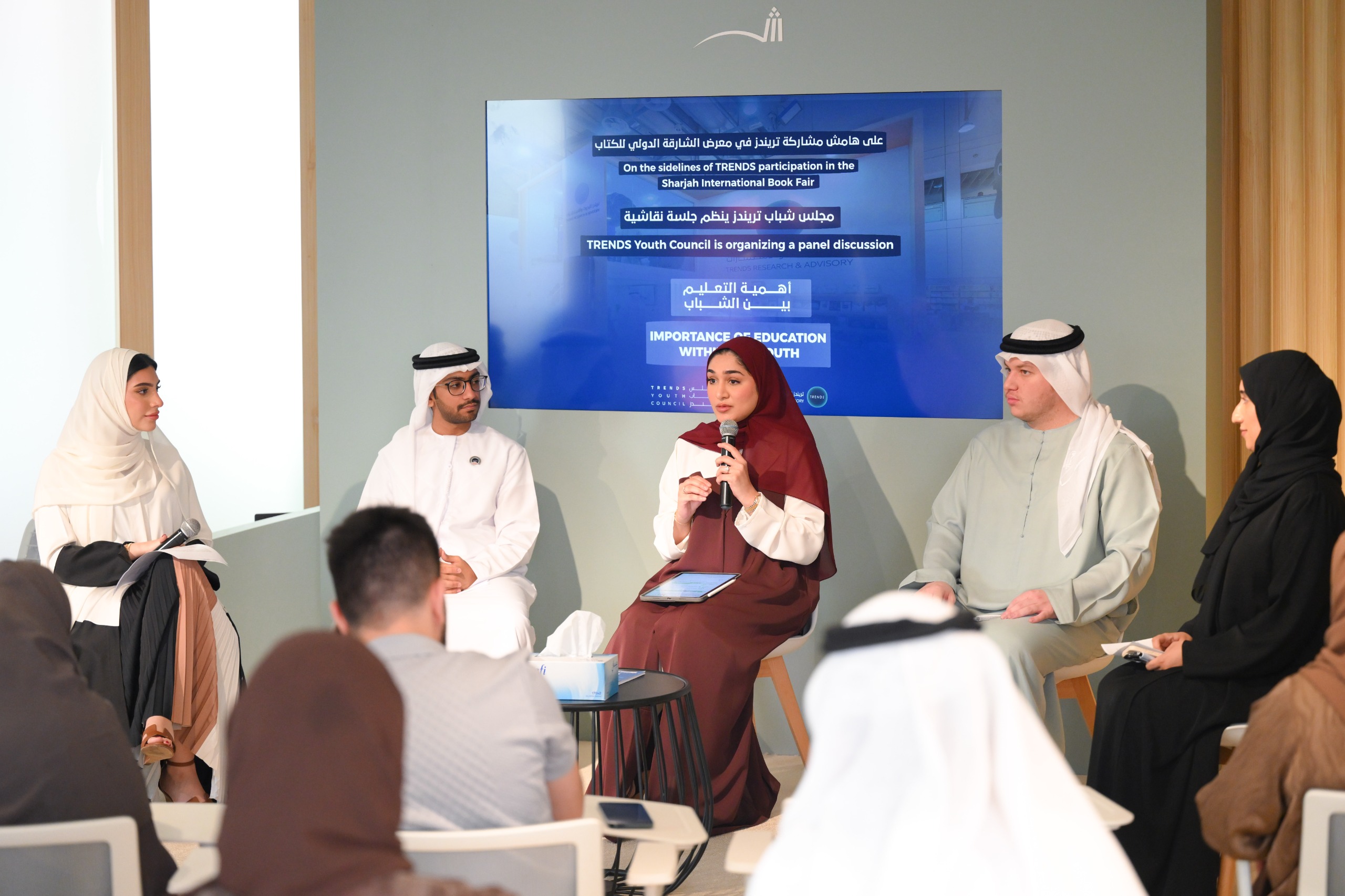
Undermining Learning Fundamentals
Al-Khaja warned against over-reliance on AI, as it could undermine the fundamentals of learning and lead to a decline in creativity. When students no longer need to think deeply or ask questions, it becomes a passive learning approach that weakens their ability to conduct thorough, independent research. He added that using AI effectively requires teaching students how to leverage it without allowing it to replace their critical thinking, using AI as a starting point, not a final answer.
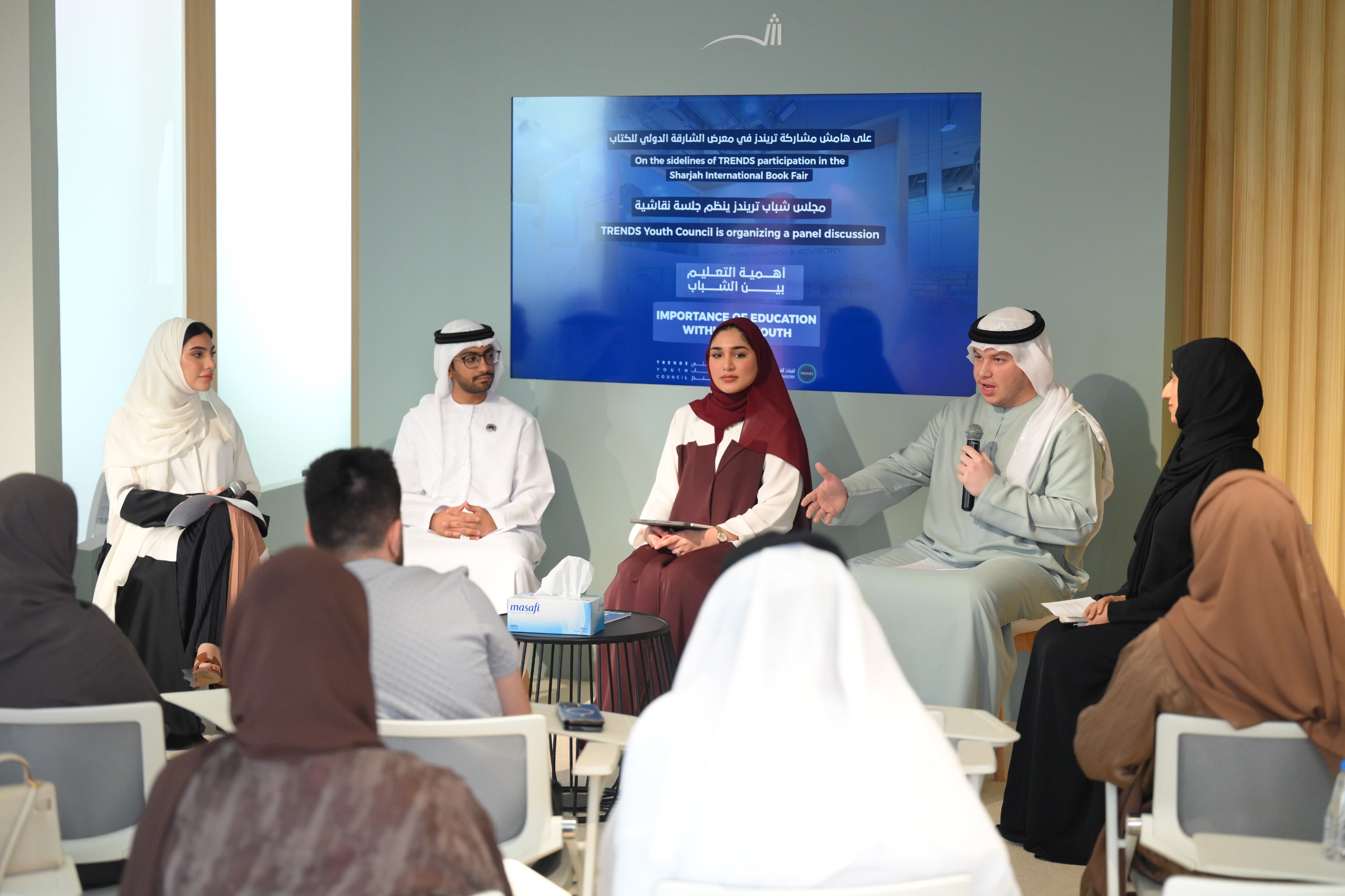
Developing Leadership Skills
Aisha Al-Ali, a member of the Sharjah Youth Council, said that comprehensive education that goes beyond traditional academic curricula is the key to success in any field. She highlighted the need to build personal and professional skills, which are fundamental for preparing individuals to face complex challenges in their careers. She emphasized the importance of developing leadership skills, flexibility and adaptability to excel in the professional world.
She also called for youth to expand their knowledge in various fields, including technology, innovation, and entrepreneurship, as this would broaden their horizons and prepare them for a rapidly changing future. Al-Ali pointed out that continuous learning and the constant updating of knowledge are essential for educational institutions to keep pace with technological advancements and equip young people with the skills necessary to tackle global challenges.
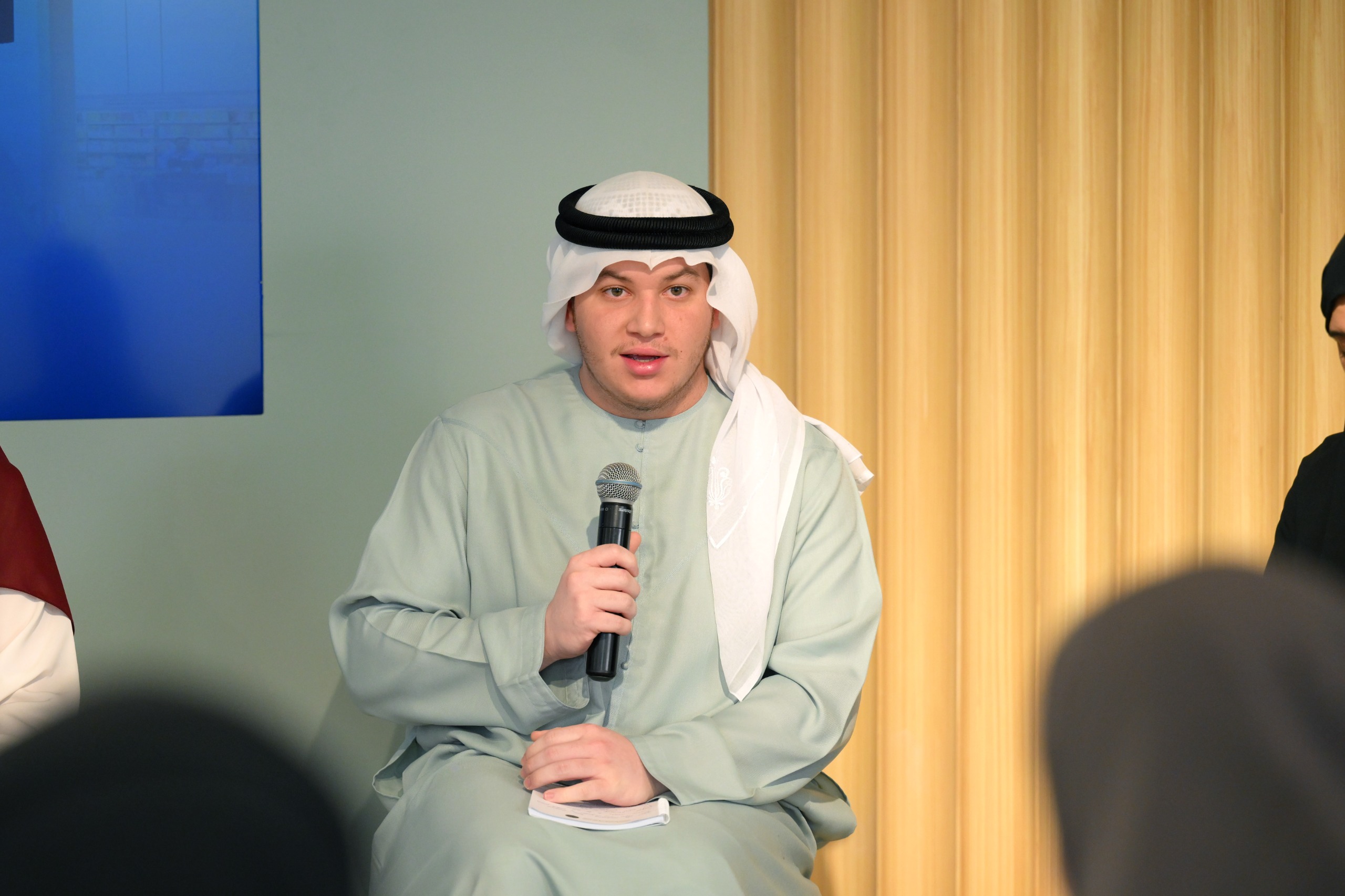
Enhancing Academic Skills
Omar Al-Ali, President of the Student Association of Foreign Affairs (SAFA) at the American University of Sharjah, discussed the significant role played by extracurricular activities in enhancing education for youth. He explained that such activities help students apply what they learn in the classroom, thereby deepening their understanding of academic concepts.
He regarded extracurricular activities as an important bridge between academic learning and personal development, opening new horizons for students to explore their interests and strengthen their life skills, making them better prepared to meet the future job market’s demands. He added that these activities develop critical and creative thinking skills, time and stress management, as well as cooperation and teamwork capabilities.
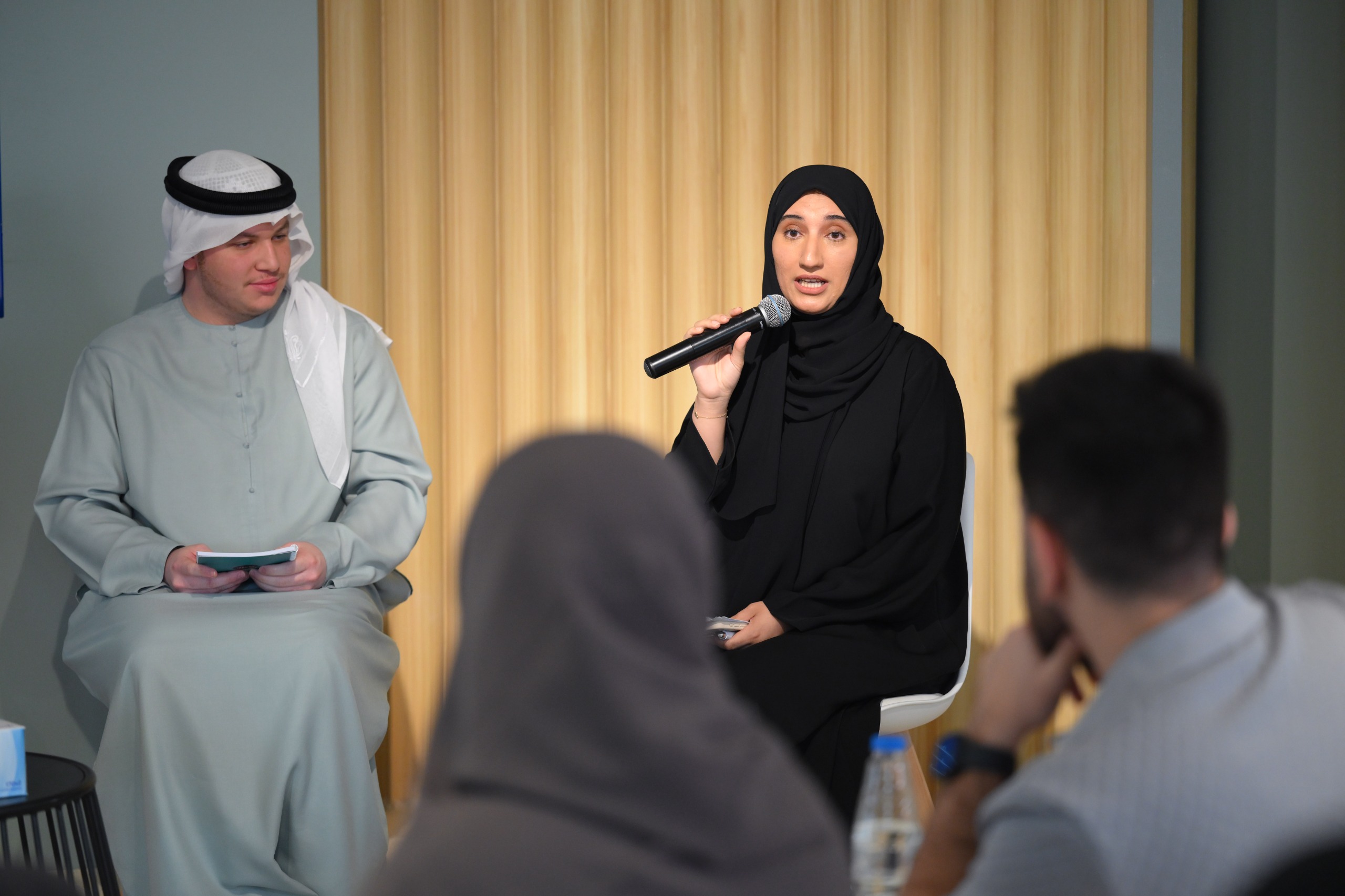
Future Skills
Zahra Alblooshi, Senior Specialist in Strategic Planning and Corporate Performance Management at the Regional Center for Educational Planning, highlighted that future skills are critical for youth to adapt to the increasing challenges posed by technological transformation. She pointed out that these skills go beyond traditional technical knowledge, encompassing human and leadership abilities that empower young people to positively engage with various changes in the job market.
Alblooshi emphasized that youth need to acquire communication, leadership, and influence skills, as well as problem-solving abilities. Among the most important skills young people should possess are interacting with AI, data analysis, critical thinking, problem-solving, creativity, innovation, flexibility, adaptability, and continuous learning. She concluded by advocating for a “lifetime learning” mindset to stay ahead and develop personal and technical skills to contribute effectively to the future economy and meet its growing challenges.
